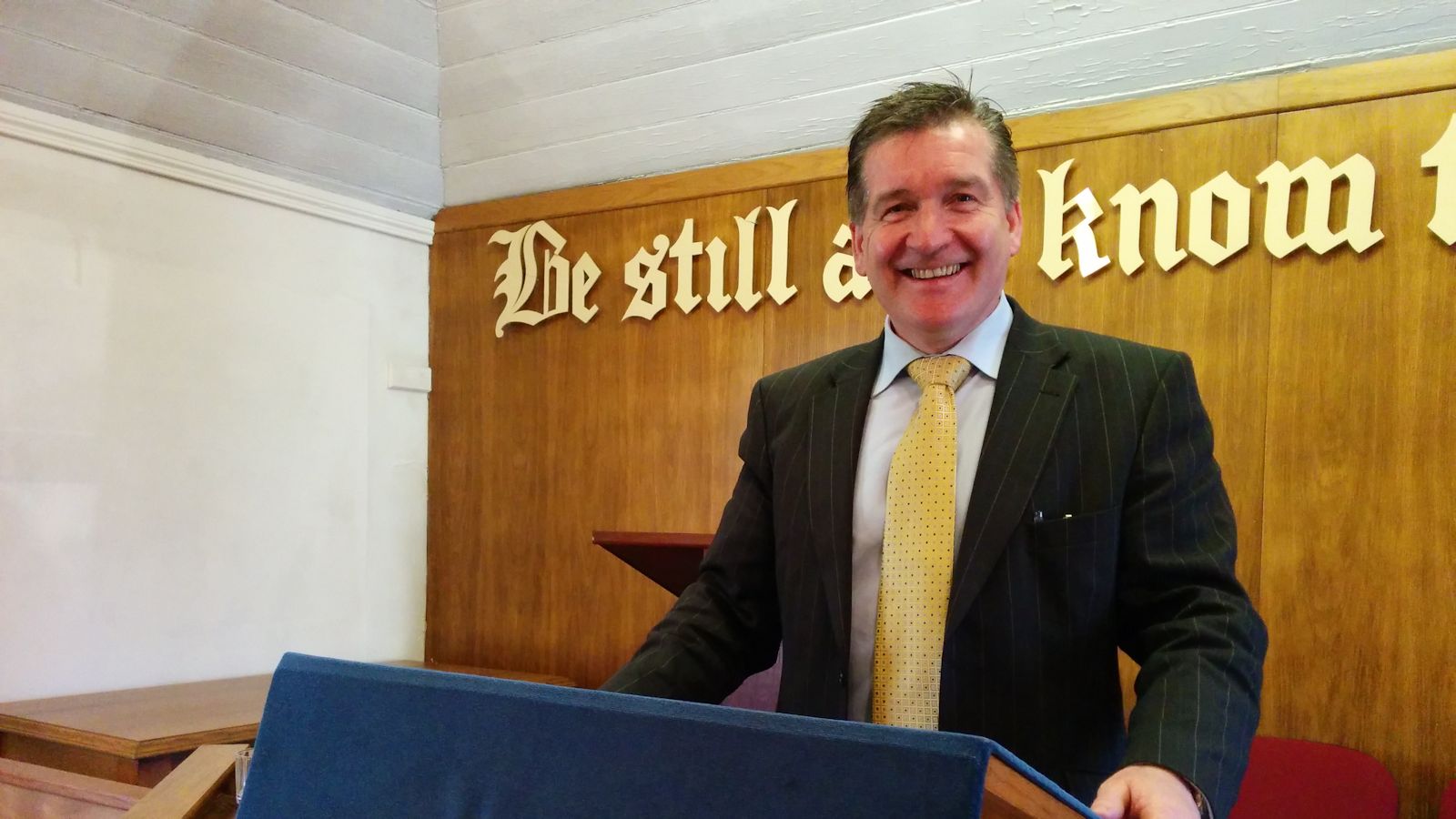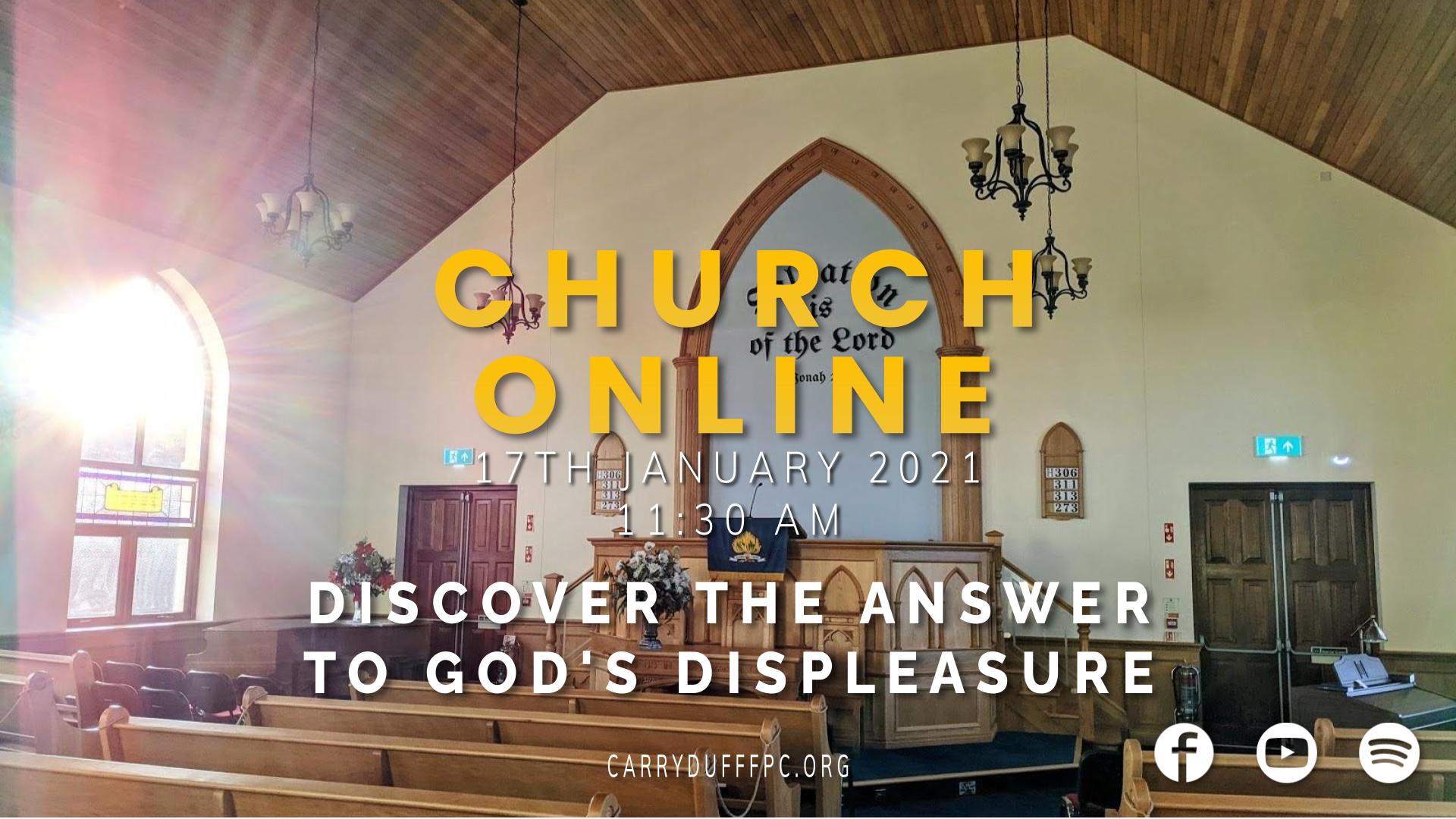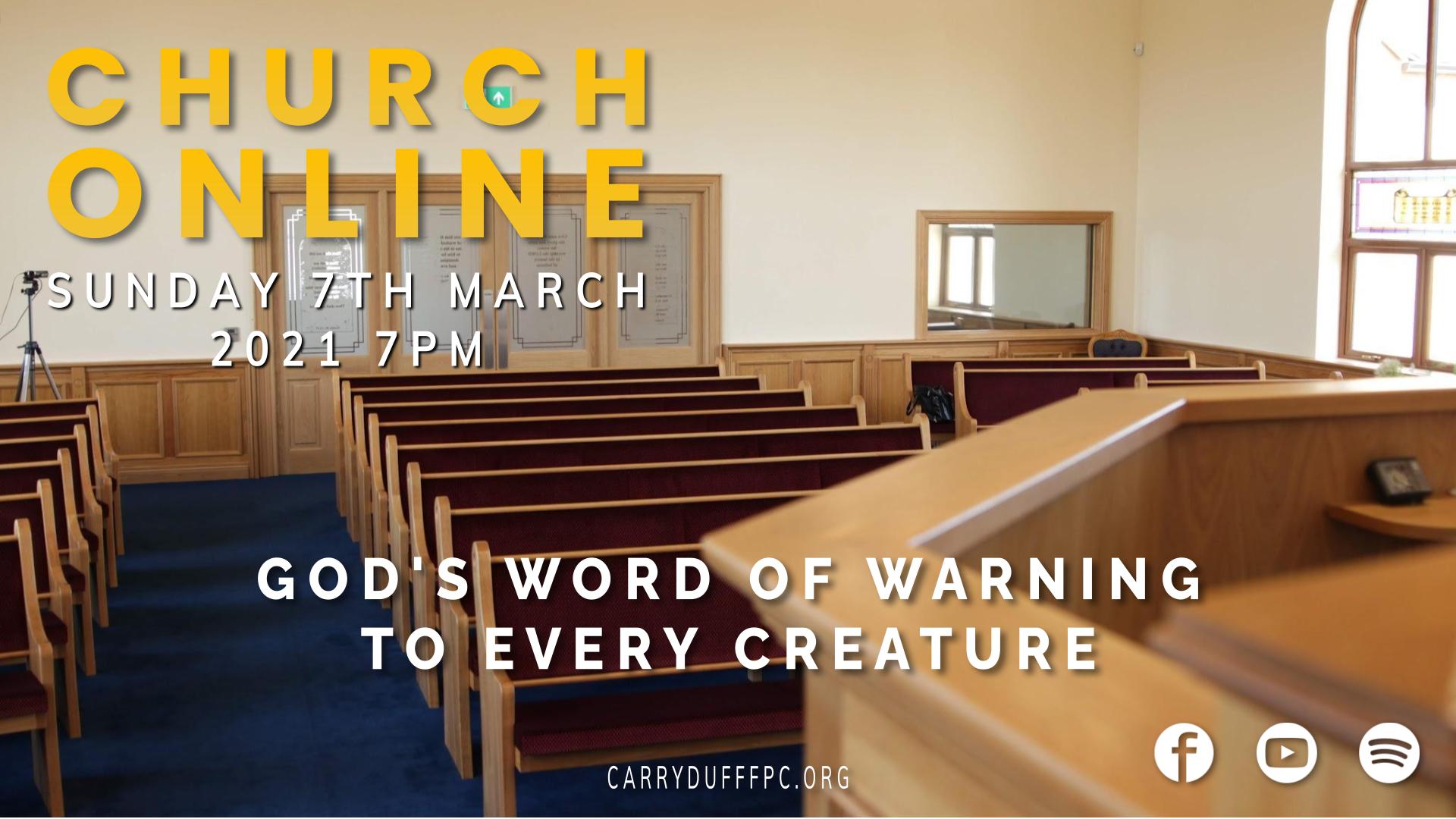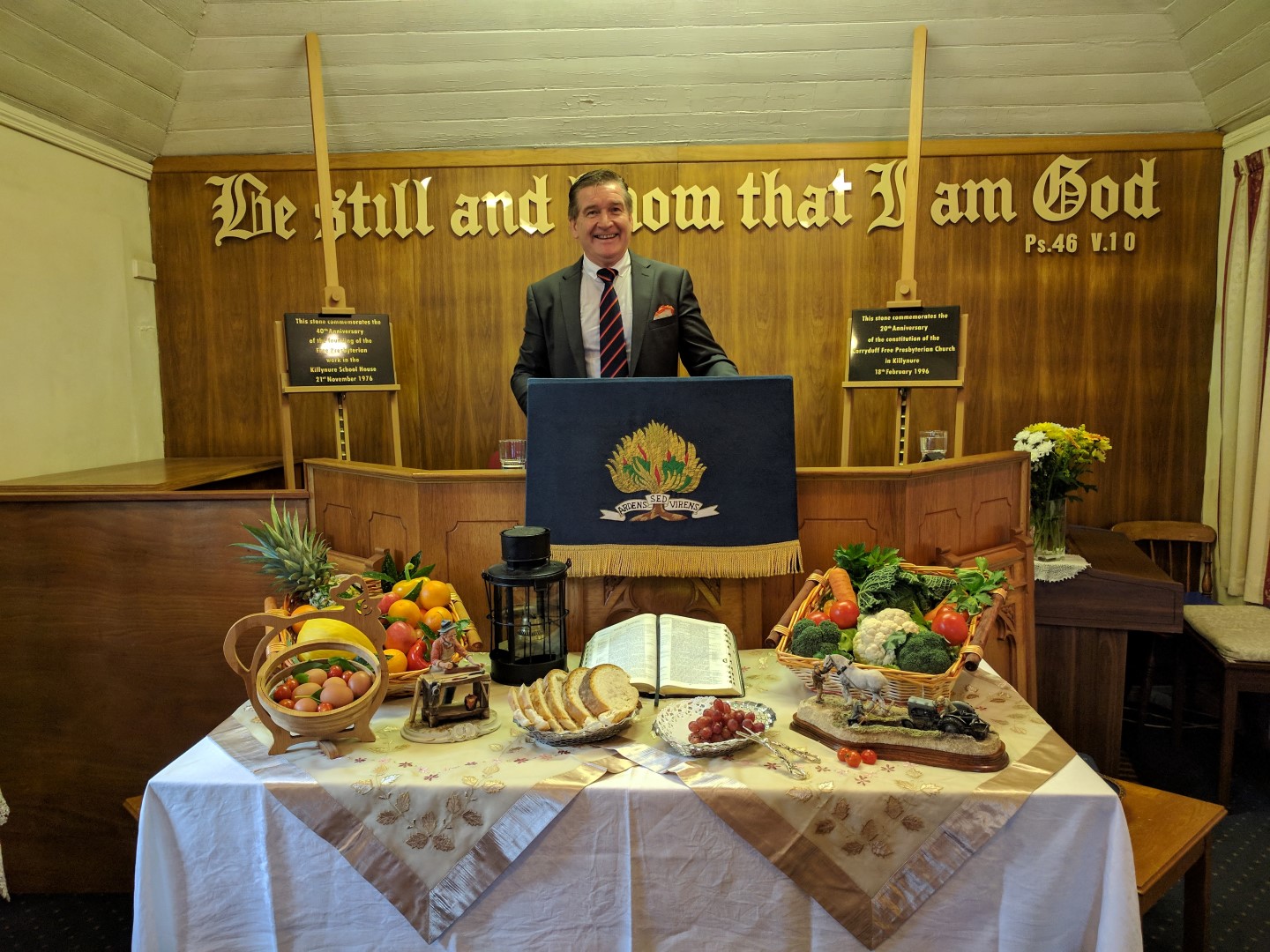Date: Sun AM 15th October 2023
Preacher: Rev. David McLaughlin
Bible Reference: Amos 1:6-8
Thus saith the LORD;
For three transgressions of Gaza,
and for four, I will not turn away the punishment thereof;
because they carried away captive the whole captivity, to deliver them up to Edom:
But I will send a fire on the wall of Gaza,
which shall devour the palaces thereof:
And I will cut off the inhabitant from Ashdod,
and him that holdeth the sceptre from Ashkelon,
and I will turn mine hand against Ekron:
and the remnant of the Philistines shall perish, saith the Lord GOD.
Detailed Summary of the Sermon on Gaza
Text and Context: The sermon draws from Amos 1:6-8, where God pronounces judgment on Gaza for its transgressions, specifically for taking captives and delivering them to Edom. The preacher frames the sermon around the recent Hamas attack on Israel on 7th October 2023, describing it as a significant and horrific event, and uses biblical references to provide a historical and spiritual perspective on the conflict in Gaza.
Title and Theme: Titled “Gaza: Its War with Israel and the Word of God,” the sermon addresses the ongoing conflict in Gaza, its historical roots, and its spiritual implications. The preacher connects current events to biblical prophecy, urging the congregation to view the situation through a scriptural lens, showing empathy for those suffering, and maintaining hope in God’s ultimate plan.
Key Points:
- Recent Events in Gaza (October 2023):
- The sermon begins with a vivid description of the Hamas attack on Israel on 7 October 2023, launched at approximately 6:40 AM Israeli time. Described as an Islamic jihadi terrorist assault, it involved coordinated attacks from land, sea, and air, with thousands of rockets targeting cities like Ashdod, Tel Aviv, Jerusalem, and Hebron, aiming to overwhelm Israel’s Iron Dome defence system.
- According to news reports, Hamas terrorists infiltrated Israeli territory, resulting in the murder of approximately 1,300 Jewish people, including 40 babies (some shot, beheaded, or burned), and thousands injured. Around 150 Israelis, including soldiers, women, and children, were taken captive to Gaza, facing potential torture or death.
- The preacher calls this the worst mass killing of Jews since the Holocaust, condemning the “evil, inhuman, barbarous, sectarian murder” and urging opposition from those who value the rule of law and democracy.
- In response, Israeli Prime Minister Benjamin Netanyahu declared a state of war, predicting a long and difficult conflict. By the eighth day of the war, the Gaza Health Ministry reported 2,329 Palestinian deaths, though the preacher questions whether this includes Hamas fighters. Israel ordered the evacuation of 1.2 million people from northern Gaza and initiated military operations, with potential ground offensives looming.
- The preacher notes international involvement, with Iran threatening intervention via the UN, Hezbollah (under Iran’s influence) posing a threat from Lebanon, and the US and UK deploying aircraft carriers to the Mediterranean. This raises concerns about a potential escalation to a global conflict.
- Biblical and Historical Context of Gaza:
- The sermon traces Gaza’s history back to biblical times, emphasizing its ancient origins rather than modern geopolitical events (e.g., Roman conquest, the Balfour Declaration of 1917, or the UN partition in 1947). Gaza is mentioned 19 times in the Bible (18 in the Old Testament, 1 in the New Testament), with references in Genesis 10:19, Joshua 10:41, Joshua 11:22, and Acts 8:26, among others.
- Gaza, part of the Philistine territory (also called Philistia or Azzah in scripture), was home to the Canaanites and later the Philistines, who were Israel’s “most fearsome enemy” since the days of Abraham, Isaac, and Jacob. The preacher highlights Joshua’s failure to conquer Gaza, leaving it in the hands of the Canaanites and the Anakim (giants, like Goliath of Gath).
- The Philistines, identified as descendants of the Caphtorites (from Crete, as per Deuteronomy 2:23 and Jeremiah 47:4), are linked to modern Palestinians through linguistic and historical continuity. The preacher claims their descendants, now represented by Hamas, continue to harbour enmity towards Israel, seeking its annihilation.
- Enmity of Gaza:
- Gaza’s historical and ongoing hostility towards Israel is a central theme. The preacher cites Amos 1:6, where God condemns Gaza for taking captives, drawing parallels to Hamas’s actions in 2023. He describes Hamas as driven by a “satanic” hatred of Jews, chanting slogans like “gas the Jews” and “death to the Jews.”
- Since Israel’s withdrawal from Gaza in 2005, Hamas has controlled the region, destroying Jewish settlements and synagogues, leaving no Jewish presence. The preacher argues that Hamas’s goal is not coexistence but the destruction of Israel, supported by Iran (which he claims received $6 billion from the Biden administration for its nuclear programme) and Hezbollah.
- The sermon frames this conflict as part of a broader spiritual battle, with Satan energizing Hamas and its allies to oppose God’s plan for Israel.
- Empathy for Gaza:
- Despite condemning Hamas, the preacher expresses empathy for Gaza’s people, describing them as living under an oppressive regime. He disputes the narrative of Gaza as an “open-air prison” run by Israel, noting that Hamas has governed since 2005, enforcing strict Islamic laws (e.g., banning alcohol, imposing dress codes, and patrolling morality).
- He highlights Gaza’s paradoxes, such as a modern shopping mall, while acknowledging the suffering of its people. The preacher supports Israel’s efforts to target Hamas, not civilians, and notes their attempts to avoid civilian casualties (e.g., dropping leaflets to urge evacuation). He calls for humanitarian corridors and condemns the glorification of terrorism in global protests supporting a “free Palestine.”
- He criticizes political parties in Northern Ireland (Sinn Féin, SDLP, Alliance) and the Republic of Ireland for their stances, as well as the BBC for not labelling Hamas as terrorists, viewing these as manifestations of anti-Semitism.
- Expectation for Gaza:
- The sermon concludes with a message of hope tied to the biblical account in Acts 8:26-35, where Philip evangelizes an Ethiopian eunuch near Gaza, leading to his conversion. This illustrates God’s redemptive power even in a region marked by conflict.
- The preacher urges the congregation to pray for Jerusalem and Gaza, seeking deliverance for its people from Hamas’s oppression. He advocates for a “just war” against Hamas, based on principles of legitimate authority, just cause, and intent to promote peace, as outlined by Augustine.
- Christians are called to labour for the gospel, love all people regardless of creed or culture, and live faithfully in an evil world. The sermon emphasizes the second coming of Christ, when He will return in “flaming fire” to judge those who reject the gospel (Zechariah 12, Ezekiel 37-38). The preacher connects current events to end-time prophecies, including the division of Jerusalem and the Battle of Armageddon, urging readiness for Christ’s return.
Conclusion: The sermon intertwines contemporary events with biblical prophecy, portraying the Gaza conflict as a continuation of ancient enmity rooted in scripture. While condemning Hamas’s actions and supporting Israel’s right to defend itself, the preacher calls for empathy for Gaza’s people and a commitment to sharing the gospel. He frames the conflict as part of God’s sovereign plan, culminating in Christ’s return, and encourages the congregation to pray, live faithfully, and trust in God’s control amidst global turmoil.
Subscribe to the podcast here:
Spotify Podcasts | Apple Podcasts | Pocket Casts
Email | RSS | more information here







